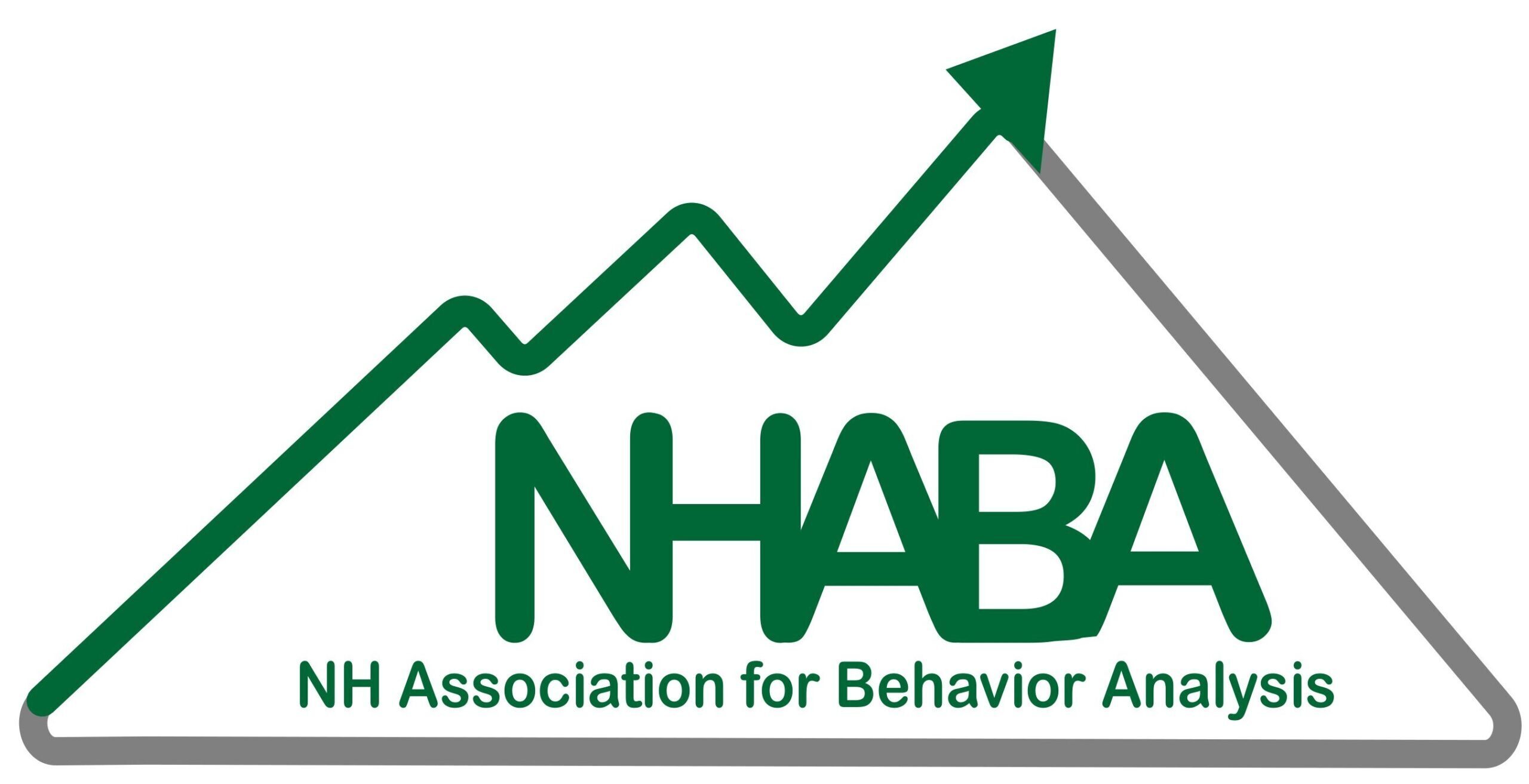NHABA - Public Policy Committee

In Support of SB353: relative to insurance coverage for autism spectrum disorder and Down syndrome
April 10, 2024
Chairperson John Hunt, Vice Chair Keith Ammon, and Members of the House Committee on Commerce and Consumer Affairs:
On behalf of the New Hampshire Association for Behavior Analysis (NHABA), we are offering testimony in support of SB 353 relative to insurance coverage for autism spectrum disorder and Down Syndrome, sponsored by Senator Watters and colleagues.
NHABA is a nonprofit entity operating in the state of New Hampshire and the state’s professional organization for behavior analysts and students of behavior analysis. NHABA exists to advance the profession, science, and practice of behavior analysis by advocating for the profession and the services its practitioners provide; promoting quality assurance and training for practitioners at all levels; providing practitioners and the community with resources and information related to behavior analysis and promoting and providing professional development activities for behavior analysts, behavioral scientists, and students of behavior analysis.
Behavior analysis is a natural science discipline whose subject matter is behavior interacting with environmental events. Applied behavior analysis (ABA) therapy involves applying scientific principles and procedures discovered through basic and applied research to improve socially important behaviors to a meaningful degree. Extensive research conducted since the 1960s has documented the efficacy of scores of ABA therapy procedures – singly and in various combinations – for building functional life skills and reducing interfering behaviors across many populations, including those people diagnosed with neurogenetic syndromes, including Down syndrome, Prader-Willi, Williams Syndrome.
While ABA therapy has been generally linked with early intensive intervention for children diagnosed with autism and other developmental disabilities, and/or intellectual disabilities, it is effective and necessary across a wide-reaching number of conditions and across the lifespan. ABA therapy plays a vital role in improving the quality of life and functional outcomes of individuals by targeting communication, social engagement, personal responsibility, self-regulation, and adaptive behaviors.
When designed and overseen by qualified professionals, ABA therapies have proven effective for ameliorating symptoms, developing adaptive behaviors, and reducing maladaptive behaviors so as to enhance healthy, successful functioning and prevent deterioration and regression in patients with disorders that arise during the developmental period. Those include but are not limited to autism spectrum disorder, intellectual and other developmental disabilities, attention-deficit/hyperactivity disorder, brain injuries and diseases, and others, including genetic conditions such as Trisomy 21 or Down Syndrome. Examples of adaptive behaviors include social, communication, cognitive, leisure, self-care, daily living, vocational, and personal safety skills. Maladaptive behaviors that have been treated effectively with ABA procedures include but are not limited to self-injury, property destruction, pica (ingesting inedible items), aggression, and elopement (wandering).
To provide context to the benefit ABA therapy could potentially provide to the population of people impacted by a diagnosis of Down Syndrome in the state of New Hampshire; based on data collected in 2016, of every 10,000 live births in the state, 20.5 were diagnosed with Down Syndrome (de Graaf et al., 2022). Considering the behavioral profile prevalent for children and adolescents diagnosed with Down Syndrome, in a study conducted in 2018, Patel and colleagues identified that compared to typically developing children, both the number of identified problem behaviors and the frequency of these behaviors was greater for those diagnosed with Down Syndrome; with 93.8% of children diagnosed with Down Syndrome engaging in these interfering behavior on at least a weekly basis (Patel et al., 2018). Of those behaviors reported in this particular study, ABA therapy has proven effective in reducing all, including aggression, elopement, and self-injury; considering those reported that would be most dangerous to the health and well being of self and others.
While this provides only a small sample of the research to support the number of people that would benefit from ABA therapy to address behavioral needs associated with a diagnosis of Down Syndrome, please reference the included citations to gain an understanding of the impact ABA therapy could have on this population of people. We also respectfully request consistency in use of “and” rather than “or” in the verbiage of the proposed bill, as we are concerned the use of “or” will reduce access to medically necessary treatment for individuals by health plans.
We look forward to a favorable response, in support of SB 353 relative to insurance coverage for autism spectrum disorder and Down Syndrome, sponsored by Senator Watters and colleagues.
References
ABA Coding Coalition. (2020). Model Coverage Policy for Adaptive Behavior Services. Retrieved from: https://abacodes.org/wp-content/uploads/2020/09/Model-Coverage-Policy.pdf, April 22, 2024.
Graaf, d.G., Buckley, F., Skotko, B. (2022). People living with Down syndrome in the USA: births and population. Retrieved from: https://docs.downsyndromepopulation.org/factsheets/down-syndrome-population-usa-factsheet.pdf, April 22, 2024.
Patel, L., Wolter-Warmerdam, K., Leifer, N., Hickey, F. (2018). Behavioral characteristics of individuals with Down Syndrome. Journal of Mental Health Research in Intellectual Disabilities. 11, 221-246, DOI: 10.1080/19315864.2018.1481473.
Patel, L., Wolter-Warmerdam, K., Hickey, F. (2020), Patterns of behavior and medical comorbidities in Down Syndrome. Journal of Mental Health Research in Intellectual Disabilities. 1-14, DOI: 10.1080/19315864.2020.1790064.
Additional Resources
Bognot, F.L., (N.D.). The utilization of applied behavioral analysis in a child with Down Syndrome. CCA Research Journal. 84-91, ISSN 2599-414X.
Feeley, K.M., Jones, E.A. (2006). Addressing challenging behaviour in children with Down syndrome: The use of applied behaviour analysis for assessment and intervention, Down Syndrome Research and Practice. 11, 64-77.
Neil, N., & Jones, E. A. (2016). Repetitive behavior in children with Down Syndrome: Functional analysis and intervention. Journal of Developmental and Physical Disabilities, 28(2), 267-288. doi: 10.1007/s10882-015-9465-x
